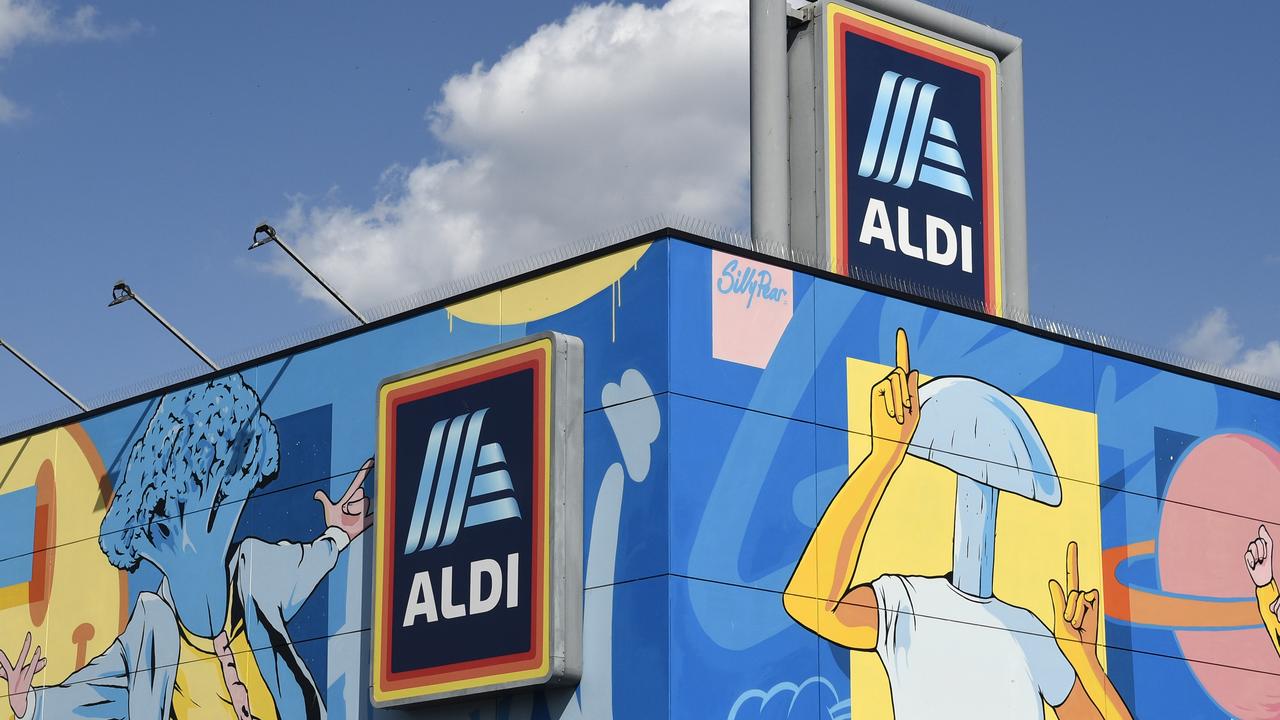Why do we love to hate the supermarkets?
AUSTRALIANS love to hate Coles and Woolworths and kick them at every opportunity. So why do we keep coming back?
AUSTRALIANS love to hate Coles and Woolworths and kick them at every opportunity. We feel that they dominate the market, push out smaller players and that we have no real choice but to shop there.
But the question is, if we hate them so much, why do we keep going back?
Consumer researcher Neer Korn said people were “very keen to express how frustrated they are” about the big two supermarkets.
“They hate them largely because they’re a duopoly, and they feel the effects of that,” he said.
“They feel the supermarkets are not on the customers’ side, that customers are having the wool pulled over their eyes, that they have no real choice. There is a lot of anger about they way they treat the small Australian producers and little brands with no ability to negotiate.”
So why do we keep going back to the big supermarkets? It’s not Stockholm syndrome, Mr Korn argues, but something much simpler: hypocrisy.
“It’s convenient. People have learnt to live with their own hypocrisy. If it’s more convenient that’s where they’ll go. They might do it through gritted teeth, but they’ll still do it,” he said.
Mr Korn said consumers he interviewed went over the top in praising Aldi, he said, out of a desire to kick Coles and Woolworths.
“They shop at Aldi to save a lot of money, but they do it as well to get back at the supermarkets. They feel like they’ve won,” he said.
“There’s a strong emotional reward to it. They go to bizarre degrees in praising Aldi — about the fact they let their check-out staff sit rather than stand, for example — far beyond what they should. They see it as the little battler, not the big European conglomerate.”
Meanwhile, the former deputy chair of the Australian Competition and Consumer Commission has warned that the overwhelming dominance of Coles and Woolies is a “self-tightening noose” around consumers’ necks.
Despite the growing influence of challenger brands like Aldi, supermarket duo Coles and Woolworths still wield scope and scale that allows them to abuse their market power and bully suppliers, according to Allan Asher.
Mr Asher, who served for 12 years at the consumer watchdog between 1988 and 2000, said the clumsiness of online shopping offerings and unresponsiveness to complaints were evidence that there was still not enough competition in the market.
“These are standard tests in a concentrated consumer market of poor service,” he said.
“In the UK, there are four or five chains which have about the same market share as the two here. Competition authorities there have found that was still too few to create real variety and pressure to deliver customer service.”
Mr Asher welcomed the proposal put by the Harper Competition Policy Review for an “effects test” — whether conduct will lessen competition substantially — arguing it would make it easier to establish abuses of market power.
“Suppliers are so beholden to the big supermarkets that they can’t ever afford to be even-handed with independents. If the government does adopt these plans then competitors to the big two will be able to fight on a more equal basis,” he said.
That ultimately would flow through to the consumer in the way of lower prices, he argues — although experts have warned that implementing the effects test could be tricky.
Mr Asher pointed to the rise of Aldi as a healthy counterpoint to the war being waged by Woolworths and Coles on the “micro-markets” inhabited by independent grocers.
“Aldi is a clear sign customers are really keen to go somewhere else,” he said.
“The independent sector represented by IGA and Metcash have never been able to withstand the gradual growth of the others. Far from retreating, Woolworths is now investing tens of millions of dollars further moving into those micro-markets at the local level.”
But he said competition regulators should only intervene to the extent that smaller players were being squeezed out through acquisition.
Independent senator Nick Xenophon says he will reintroduce a package of measures in coming weeks to tackle the most concentrated supermarket industry in the world.
He proposes a mandatory industry code of conduct covering the entire supply chain, from supermarkets through to processors and producers, and greater power for the ACCC to apply to the courts to break up companies that have abused their market power.
Similar powers exist in other countries, including the US, but are rarely used. Under such laws, if Coles or Woolworths were found to be abusing their market power, the court may order the retailer to sell off 10 supermarkets in a particular area, for example.
“My argument is the power would rarely if ever be used, but the fact that it exists would change the culture of the operation,” Senator Xenophon said. He is pushing ahead with the campaign despite opposition from the government.
Senator Xenophon first introduced the bill last year, with the only supporter on the government side being Queensland Nationals senator and former Productivity Commission director Matt Canavan.
“If a company is aware that potential abuse of their market power could lead to a bust-up of part of the company, then they would have in place a number of mechanisms to avoid that,” he said.
“I don’t believe these are inherently bad people, on an individual level they’re decent people. They’re just there to maximise return to shareholders. But it’s a function of their market power that leads to these situations.”




